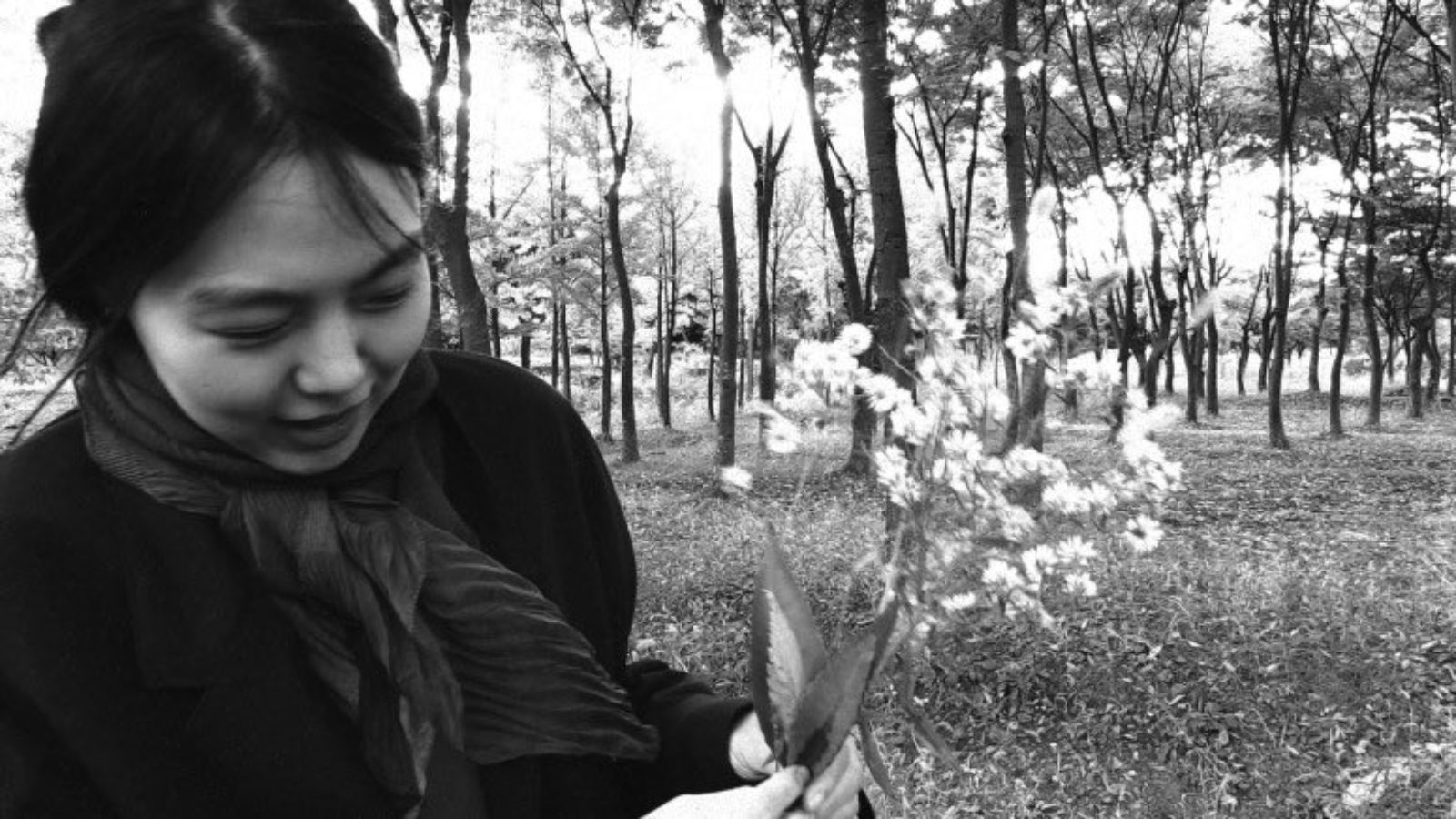There is a small but growing belief among critics that just as Hong Sangsoo inches toward legendary status (festival omnipresence; evangelized by Richard Brody; Kim Min-hee placing 17th on the New York Times’ top 25 actors of the 21st Century, etc.) his bit might finally be going stale. Whichever side one lands on (you shall find no mutiny here), it will always be hard to resist the calm, casual charms of a work like The Novelist’s Film: a story about the creative process, shot in soft black-and-white, and a mid-range addition that won the Grand Jury Silver Bear at the Berlinale—his most prestigious award to date.
Writers, poets, directors, film students, wacky zooms, plenty of booze (not soju this time but Makgeolli, a milkier rice wine that comes in a plastic bottle; how’s that for innovation)—all, of course, are present and accounted for here. Anyone wise to Hong’s work will know the cues all too well; what’s sometimes more interesting is finding the breaks from the norm. Like in Right Now, Wrong Then, a film that increasingly looks like his defining masterpiece, spotting the variations is half the game. For The Novelist’s Film, he spins a web of interconnected characters. Lee Hyeyoung plays Junhee, a renowned and once-prolific author. The film begins with her visiting an old friend, Sewon (Seo Younghwa), who has given up writing to run a bookstore. She then goes up to the viewing deck of a tower and meets a filmmaker, Hyojin (Kwon Haehyo.) Later, walking together in the park outside, they run into Kilsoo (Kim), a famous actress (and the eponymous wife—her novelist never appears) who is also in need of inspiration. As one thing leads to another—a ramen restaurant here, a boozy night in the bookstore there—the two women decide to make a movie together.
Hong’s dialogue is as spiky and self-reflexive as ever. After cursory greetings and compliments (someone, of course, tells Kim’s character how pretty she is), many conversations between Junhee and the people she meets become edgy, full of barbed comments brought on by a litany of small and big disappointments. (Sewon hasn’t given her feedback on her book; Hyojin was meant to adapt one of her novels but never did.) Some of these sound like Hong’s self-criticism. “I exaggerate too much,” Junhee says; she also later admits to having grown tired of her plotless writing style. Kilsoo and Junhee are inspired to collaborate together when Junhee lashes out at Hyojin for telling Kilsoo she’s wasting her time by not taking on commercial movie roles. Hong’s ensemble suggests a small kaleidoscope of creative difficulties and endeavors: from Sewon’s loss of faith to Junhee and Kilsoo’s artistic impasses, and of course their decision to team up and put something (indeed, anything) out there. There is a shade of Hong, you sense, in each. (With all of this, The Novelist’s Film can feel self-aware to the point of parody. Almost.)
If Hong’s oeuvre can be divided into his better-funded, more ambitious works (On the Beach at Night Alone, The Woman Who Ran, etc.), and the micro-budget efforts that crop up in-between (like last year’s Introduction, or the excellent Grass), The Novelist’s Film probably falls into the latter. It is a modest film, but a more light-hearted Hong than we’ve seen in some time—even The Woman Who Ran, amongst his most brightly colored films, felt drenched in melancholy—and not least at the end, when we are shown what Junhee and Kilsoo have been working on together. Shot handheld like a home movie, and switching the whole film to color, it appears at first like an amateurish, goofy love letter to Min-hee (she enjoys a sustained close up and holds up some flowers), but Hong’s latest—which was made during COVID’s restrictions, with plenty masks on show, and which Hong shot, edited, and even composed the score for—is ultimately a little ode to expression itself.
The Novelist’s Film premiered at the 2022 Berlinale and will be released by Cinema Guild.

